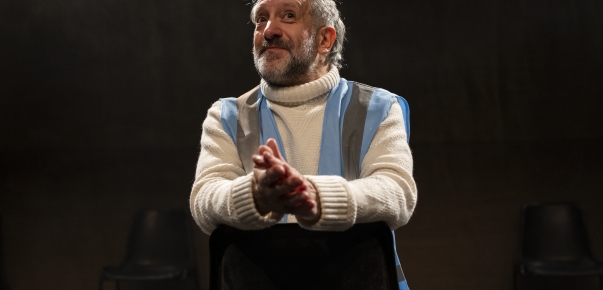As our Young Company prepare to collaborate with the National Theatre on 'Bassett', we take a look at the history of the town at the centre of it all…
5 Aug 2011Since 2007 Wootton Bassett, a small Wiltshire market town, has been part of the route taken by funeral corteges carrying dead soldiers repatriated to RAF Lyneham as they are driven to the mortuary at Radcliffe Hospital in Oxford. Two years ago, tributes began spontaneously in Wootton Bassett as Legion members paused to salute corteges as they passed by. Since then the repatriation ceremonies have grown. Nobody could have predicted that these ceremonies would come to represent so much to so many, as the national press, visitors and local people have turned out to honor those who have given their lives in service to their country.The memorial has become a meeting place for people wishing to pay their respects to those who have been killed on operations. The ceremony is simple. As the hearses approach, the tenor bell of St Bartholomew's Church begins to toll. Business in the area stops as everybody lines the streets. When the cortege reaches the war memorial it pauses while ex- and serving members of the forces raise a salute. Mr Cameron told the House of Commons: "Their deeply moving and dignified demonstrations of respect and mourning have shown the deep bond between the public and our armed forces."In March 2011, the Prime Minister announced that Wootton Bassett would be renamed Royal Wootton Bassett. David Cameron has said that the honour has been bestowed as tribute to the "enduring symbol of the nation's admiration and our gratitude to the people of that town." This is the first time in over 100 years that any town has been granted the title for its efforts to honour those killed during operations. Mary Champion, Mayor of Wootton Bassett, said: "This is a great honour for our community as the repatriations move away from Wootton Bassett."Many campaigners and journalists have argued the renaming of Wootton Bassett merely highlights the issues surrounding the validity of the war. The response of the nation to the repatriation ceremonies illustrates its grief at the loss of life, but some have pointed out that the same can not be said about the loss of Afghan lives. There has also been some debate surrounding how these proceedings are being conducted. Some believe that the ceremony has got out of hand, with mountains of flowers, tributes and cards left in the streets. Some of the local community have said they are concerned that the town is becoming the frontline of ‘grief tourism.’ There has been an angry response from many local people about the handling of the ceremonies by the media. Journalists, news vans and even cherry pickers have arrived for some repatriations and some locals claim they have turned the events into a "media circus". The Mayor of Wootton Bassett met with members of the RAF, The British Royal Legion and the police with a view to discuss the best way to maintain a culture of “dignified respect”.
There are concerns that family and friends of soldiers who have lost their lives may be adversely affected by the media treatment. However, some have said they are glad that the rest of the nation is able to bear witness. The brother of one of the deceased soldiers, Corporal Horne, has said he is glad his brother’s repatriation has warranted more than a short paragraph in a newspaper.


